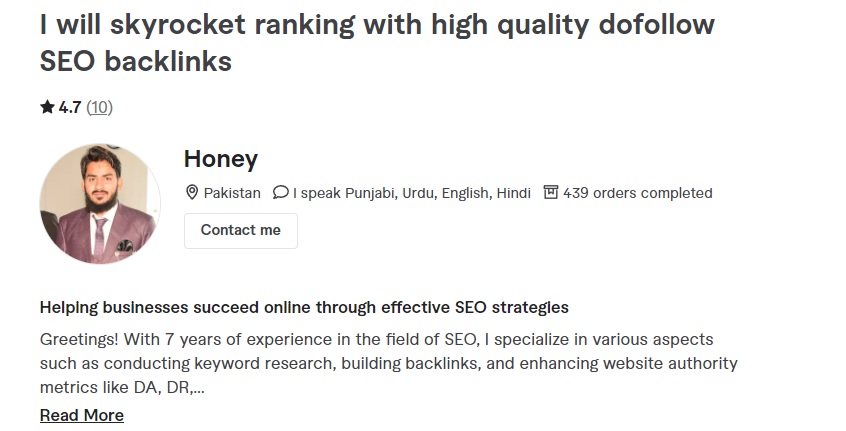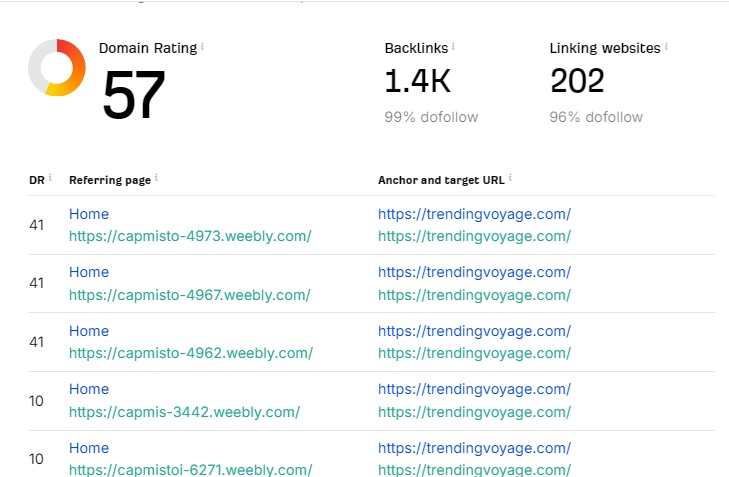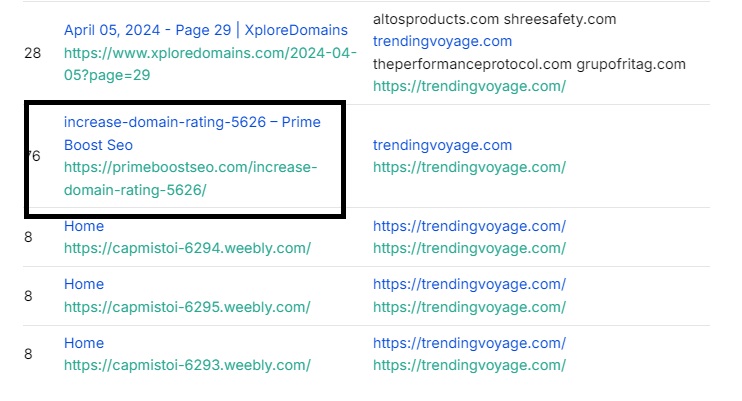Spammers are using Weebly.com, a popular website-building platform, to create what are known as Web 2.0 links, advertising them as tools to improve a website’s domain rating (DR) and authority (DA) scores.
Many people, particularly those unfamiliar with the complexities of search engine optimisation (SEO), are falling victim to these schemes, believing that these authority metrics scores will significantly strengthen their site’s ranking and credibility.
What Are Web 2.0 Links and Why Weebly.com?
Web 2.0 links are typically links created on user-generated content sites like Weebly, WordPress, Tumblr, and others. These platforms allow anyone to easily set up a blog or webpage and post content.
In theory, the links on these pages can help other websites boost their SEO metrics. However, when abused, these links can be misleading and offer little to no real value in terms of search engine rankings. (SERP)
Spammers are targeting Weebly because it’s simple to use and offers free website creation with little moderation. By setting up multiple Weebly sites, these spammers are building link networks, then selling these links under the false promise of boosting a website’s DR and DA scores.
How People Are Being Duped
Many website owners, particularly those who lack deep SEO knowledge, believe that domain rating and authority scores are official metrics used by Google to rank sites.
They’re unaware that these numbers are actually third-party vanity metrics provided by companies like Ahrefs and Moz.
These metrics can be manipulated, and spammers have learned how to artificially inflate them using shady link-building tactics like creating Web 2.0 links on platforms like Weebly.
The promise is simple: “Boost your domain authority with our link-building services!” The reality is often a far cry from that.
These services don’t actually boost a site’s real-world authority in Google’s eyes; instead, they inflate meaningless third-party seo metrics scores that have no impact on actual search engine rankings.
Most of the time, the URLs don’t even become indexed in search results. Below is a fake SEO expert (Marketing Genius) – Fraud – (scammer) with false claims that “wont” skyrocket your rankings. This guy doesn’t provide a single “real editorial link”

Unsuspecting business owners are spending money on these services, hoping for SEO gains that never come. Often, these scammers who know almost nothing about SEO or building real authority links are found operating on poplaur freelance platforms such as Fiverr.com.

Advertising The Spammy Service
This individual is also setting up URL redirects across thousands of websites, the links will show up in their backlink profiles and direct traffic to his Fiverr.com gig in hope they will be seen and clicked on. Despite being contacted, Fiverr, unsurprisingly, continues to turn a blind eye and refuses to take any action.

The Growing Problem of “Fake” Authority
In litterally thousands of cases, people are using these inflated authority scores to sell links on their websites. Websites that appear to have high DA or DR scores are positioned as authoritative, enticing businesses to purchase backlinks in the belief that it will improve their own rankings.
However, these backlinks often do little or nothing to help the purchaser’s SEO. In fact, if Google detects that these links are coming from low-quality or spammy sources, it could hurt a site’s rankings rather than help.
The practice has turned into a lucrative scam, where these fake “authority sites” are created solely for the purpose of selling content placements laiden with links at inflated prices.
The Danger for Legitimate Website Owners
While search engines like Google have improved at spotting manipulative link schemes, it’s still possible for sites participating in these tactics to face penalties.
Buying or selling links in this manner is a direct violation of Google’s guidelines. Sites caught engaging in such practices can experience a dramatic drop in their search engine rankings, potentially erasing months or years of legitimate SEO work.
For small business owners or marketers who don’t fully understand the nuances of SEO, these promises of increased domain rating or authority can be tempting.
Unfortunately, many don’t realise they’re paying for services that may actually harm their website’s credibility in the long run.
As spammers continue to come up with new spammy tactics and scams, it’s important for website owners to stay informed and avoid falling into traps that can lead to wasted money or, worse, damaged website rankings.
With the rise of platforms like Weebly being used for link-building scams, vigilance is more crucial than ever. Spammers are becoming increasingly creative in how they exploit free website builders and other user-generated platforms to create link farms.







